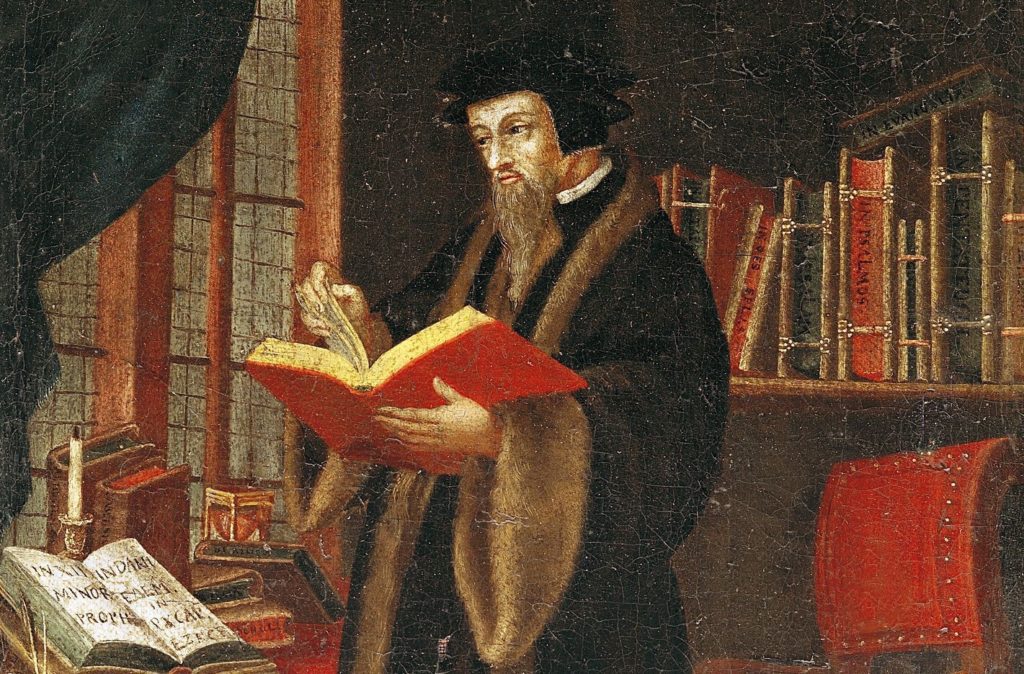One of the greatest conundrums in the history of our world is that the creator of the universe is so evident, and yet his creation is so oblivious. The heavens declare the glory of God, yet the created beings declare the glory of absence. Rather than seeing the evident common grace of God in every breath we take, we use every breath we take to further indulge our innate fleshly desires.
Without going into a full discourse on sin, let me summarize the source of mankind’s inability to see, with the following analogy. Like a person born blind, unable to see the beauty on display around them is humanity born into this world blind to the truth clearly evidenced around them. Sin is not something which we are born without and then step into. No, sin is a hereditary condition whereby all humanity is born an enemy of God as a result of Adam’s transgression (Romans 5:12).
God is Evident in the Natural Realm
Paul addresses the empirical evidence for God’s existence and activity in the world in his letter to the church in Rome. Paul asserts that God has made himself known in all things:
“For what can be known about God is plain to them, because God has shown it to them. For his invisible attributes, namely, his eternal power and divine nature, have been clearly perceived, ever since the creation of the world, in the things that have been made. So they are without excuse.” (Romans 1:19-20)
Some may be quick to say that God has made it plain, therefore all must be able to see. If it is made plain, then they should have the power to see, right? No. While it is true that God has made it plain to all, it is also true that all humanity is blinded by sin. For as much as this speaks to the evidence of God, it speaks equally as much to the blindness of man. God has made his invisible attributes “plain” to man. Yet what is plainly displayed will never be seen through the blind eyes of carnality.
The Miracle of Sight (The Markian Sandwich)
While many are amazed at the miraculous physical healings done by Jesus, many overlook the miraculous spiritual healing. A key example of this occurs in Mark 8 when Jesus seemingly takes two tries to heal a blind. A plain reading of the text seems to indicate that Jesus failed the first time. But upon deeper analysis of the preceding and ensuing verses, the true meaning of this strange act is uncovered. Preceding this miracle, Jesus warns his disciples to beware of the leaven (or teaching) of the Pharisees (Mark 8:15). Of all the New Testament figures, the Pharisees were the epitome of the spiritually blind (Matthew 23:24). They were so blind that they could not even see the one whom the Prophets they studied so vehemently spoke of!
Directly following this statement Jesus performs the miracle; Jesus first gives the man partial vision before fully restoring his sight. Being fully God (and fully man) Jesus is more than able to heal the man by the word of his mouth. Yet, Jesus chooses to show the disciples something; he chooses to show them that they still only see in part what is happening to them. They do not fully understand. Only by the miraculous work of God will their ability to see be restored. To close this beautiful “Markian Sandwich”, Mark tells of how Peter fully understands who Jesus is, “the Christ” (Mark 8:29). Alas, the cure for man’s spiritual blindness lay fully in the power of God to restore the vision of fallen sinners. This is the greatest miracle of all, and one which is overlooked far too often.
The Spectacles of Scripture
The process does not end once the Lord restores a sinner’s vision. The Spirit enables the recipient to see things that they were never before able to see in their depraved state. John Calvin adequately summarizes what occurs to a sinner renewed:
“Just as old or bleary-eyed men and those with weak vision, if you thrust before them a most beautiful volume, even if they recognize it to be some sort of writing, yet can scarcely construe two words, but with the aid of spectacles will begin to read distinctly; so Scripture, gathering up the otherwise confused knowledge of God in our minds, having dispersed our dullness, clearly shows us the true God.” (John Calvin, Institutes I.vi.1)
The Spirit gives us the ability to see, and once we have sight we then dawn the Spectacles of Scripture in order to understand. The Christian must see all things through the Spectacles of Scripture, for without them he is blinded by carnality, but with them, he [the sinner] is given understanding and with it all that is necessary for godliness (2 Peter 1:3).
“For just as eyes, when dimmed with age or weakness or by some other defect, unless aided by spectacles, discern nothing distinctly; so, such is our feebleness, unless Scripture guides us in seeking God, we are immediately confused.” (John Calvin, Institutes, I.xiv.1)

Leave a Reply